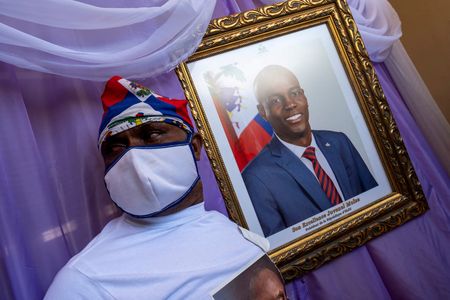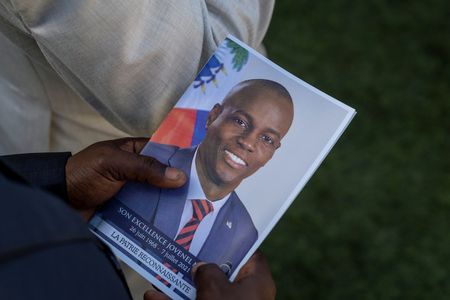By Sarah Morland and Kylie Madry
(Reuters) – Joseph Vincent, a former informant for the U.S. Drug Enforcement Administration (DEA), on Tuesday became the fourth person to plead guilty in a U.S. court for his role in the 2021 assassination of Haiti’s president that left a destabilizing power vacuum.
A Haitian-American national, Vincent is among 11 defendants, including Colombian ex-soldiers and businessmen accused of helping supply funds and weapons and carrying out the nighttime attack at President Jovenel Moise’s Port-au-Prince home.
Vincent was arrested days after the attack alongside another Haitian-American, James Solages. Both men initially said they were hired by the conspirators as interpreters.
At the time of the attack, the gunmen reportedly masqueraded as DEA agents, though the DEA later said neither Vincent nor Solages were acting on behalf of the agency.
A court filing, signed by Vincent, said he had provided material support and services to the plot, including advice about the political landscape and meetings with key community leaders.
At these meetings, the filing said, Vincent often wore a U.S. State Department pin leading people to believe he was employed by the U.S. government.
Vincent traveled to Haiti early in 2021 to back Florida-based pastor and co-defendant Christian Sanon’s bid to replace Moise, according to the filing, and on the night of the attack was a passenger in a vehicle Solages drove to the president’s home.
Vincent’s guilty plea follows those by former Haitian Senator Joseph Joel John, retired Colombian army colonel German Rivera and Haitian-Chilean citizen Rodolphe Jaar, the latter accused of helping supply guns and vehicles for the attack.
Jaar and Rivera were both sentenced to life in prison, while John is expected to be sentenced on Dec. 19.
Vincent, who could also face life in prison, is set to be sentenced on Feb. 9.
Violent armed gangs have massively expanded their territory in Haiti since 2021, driving a humanitarian crisis that has displaced tens of thousands amid reports of serious abuses including torture, mass kidnappings and frequent use of gang rape.
(This story has been refiled to remove the repeated word ‘include’ in paragraph 2)
(Reporting by Sarah Morland and Kylie Madry; Editing by Bill Berkrot)







